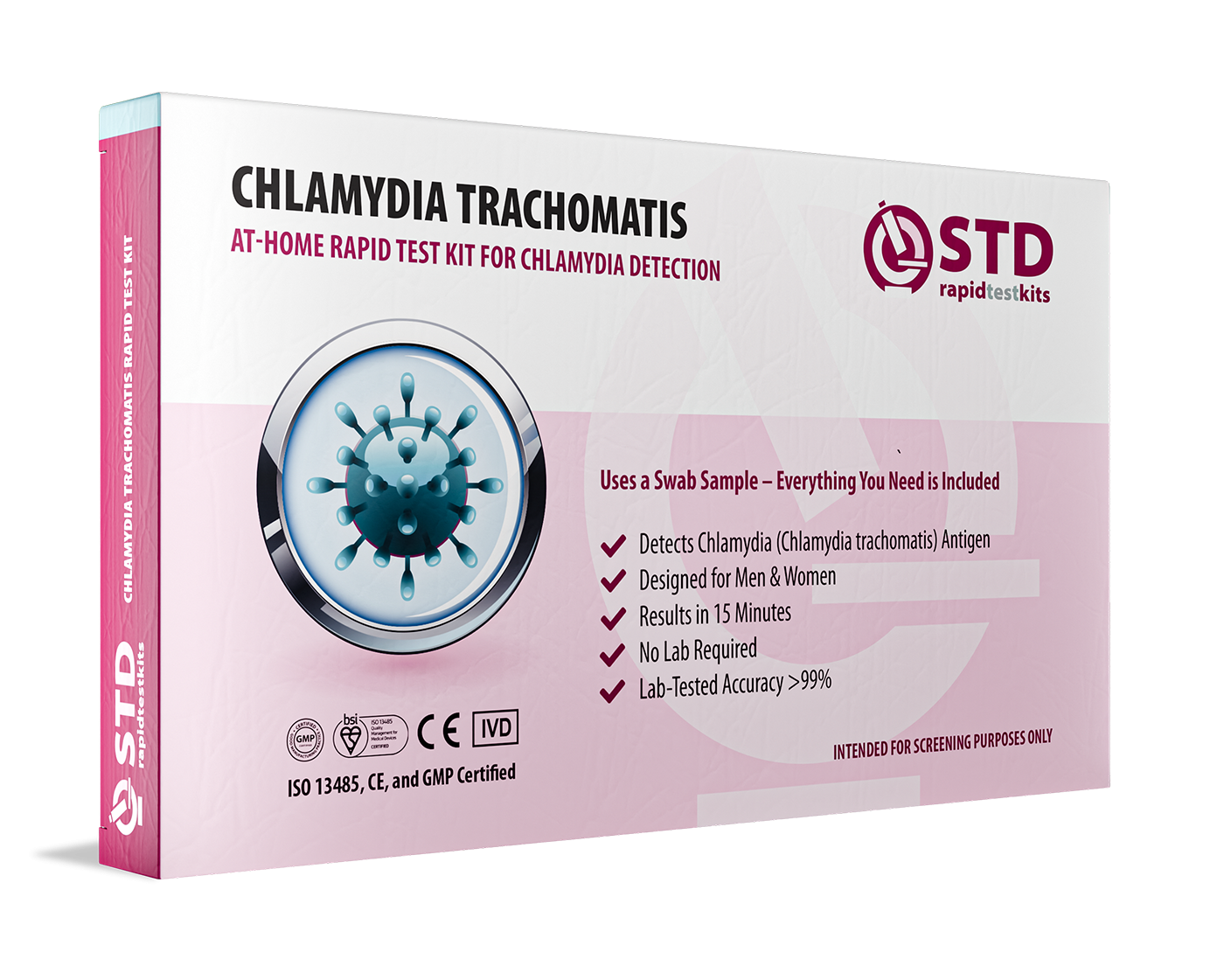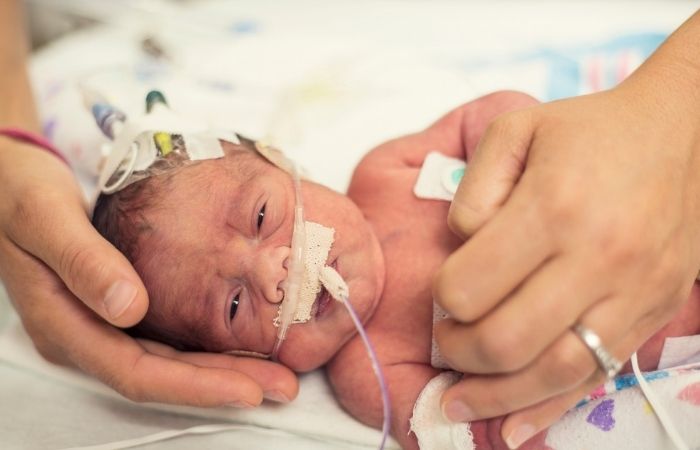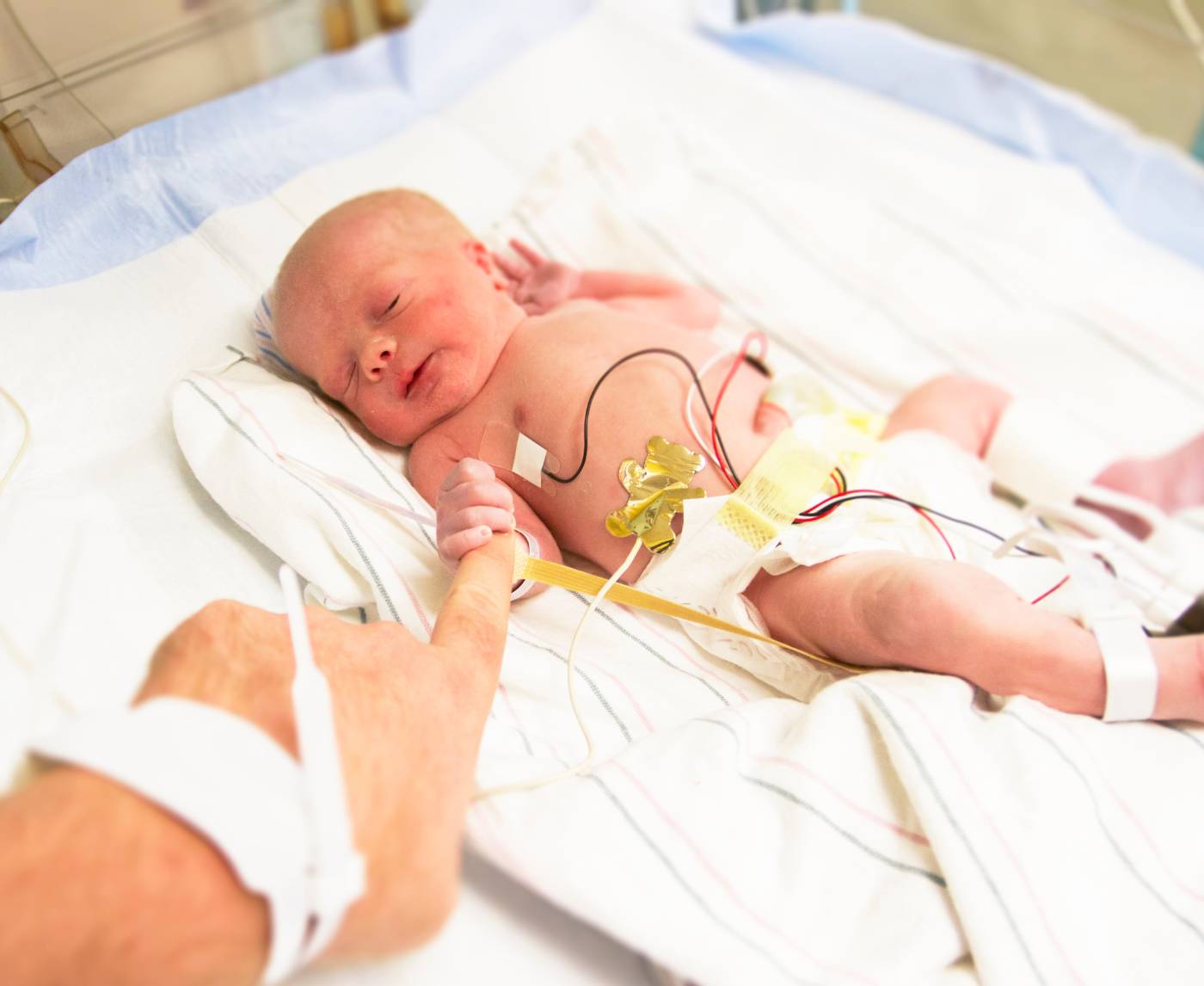Pelvic Pain After Sex: UTI, PID, or an STD?
What is Chlamydia, and How Does It Affect Pregnancy?
This infection is caused by the bacteria Chlamydia trachomatis, and the usual mode of transmission is sexual. This is one of the most common sexually transmitted infections in the world, infecting millions of individuals. Some people have no symptoms, so they might carry and transmit an infection without even realizing it. If signs of a chlamydial infection develop, they may include odd discharges, burning while peeing, and/or lower abdominal pain.
There are additional problems and hazards associated with chlamydia pregnancy. If the infection is not treated, it may result in difficulties for both mother and child. Complications of untreated chlamydia in pregnant women may include an increased risk of preterm labor, premature membrane rupture (breaking the water), and, in severe cases, miscarriage. Beyond these difficulties, the most serious issue with chlamydia in pregnancy is the possible harm to the baby. Because the infection is frequently transmitted to the newborn while navigating the birth canal, a baby with untreated Chlamydia requires immediate care.
Because of these dangers, STI screening for chlamydia is a standard element of prenatal care in the early stages of pregnancy. If chlamydia is discovered, it can be safely treated with drugs that eradicate the infection while also being safe for both the mother and the baby.

Risks to Babies If Chlamydia is Untreated
When a woman has untreated chlamydia, her newborn is at risk of various complications. The following are some of the most prevalent ways chlamydia can impact babies:
Conjunctivitis (Eye Infection)
Perhaps the most common health risk connected with newborn newborns and chlamydia is an eye infection known as conjunctivitis. Because the baby must pass through the birth canal, it is possible that he or she will contract chlamydia. When chlamydia infects the eyes, they become red and swollen with discharge, which can occur anywhere from a few days to many weeks after birth. If this is not treated, the condition will worsen and may result in issues that damage vision. Early treatment of this condition with antibiotics could thereby avoid the long-term consequences. Chlamydia-related ocular infections are easily treated.
Pneumonia
Chlamydia can also cause respiratory infections in newborns, the most serious being pneumonia. Once the baby has acquired this bacterial infection during birth, the germs may spread to the lungs, causing symptoms such as a persistent cough, hard breathing, and fever. Chlamydia pneumonia frequently develops several weeks after birth, necessitating immediate medical attention. Untreated, chlamydial pneumonia can cause significant complications and even death. In general, chlamydia pneumonia is easily treated with medicines; however, early detection is crucial before any harm occurs.
Premature Birth with Low Birth Weight
Untreated chlamydial infection in pregnant women has also been associated to an increased risk of preterm delivery (birth before 37 weeks) and low birth weight. Premature babies frequently experience health issues because their organs, particularly their lungs, have not fully developed. This can make it difficult for the infant to breathe and remain warm. Low birth weight, which is common in premature babies, puts them at risk for infections and developmental impairments. Chlamydia treatment throughout early pregnancy can help prevent significant consequences.
Each of these hazards, however, serves to highlight why testing and treatment are so important. Early discovery allows for timely treatment, which decreases the risk of transfer to the infant and ultimately helps to protect their health.
Check Your STD Status in Minutes
Test at Home with RemediumChlamydia Test Kit

 For Men & Women
For Men & Women Results in Minutes
Results in Minutes No Lab Needed
No Lab Needed Private & Discreet
Private & DiscreetOrder Now $33.99 $49.00
Chlamydia Symptoms in Newborns
Chlamydia manifests itself in a variety of ways in infants; symptoms vary depending on the type of infection received. Here are some major indicators to look out for if chlamydia was not treated during pregnancy.
-
Discharge and Swelling of the Eye: If chlamydia conjunctivitis occurs, the newborn will have yellow or greenish eye discharge, as well as red and swollen eyes. This can occur anywhere from a few days to a few weeks after delivery, and such symptoms must be treated very once.
-
Coughing and Difficulty Breathing: If chlamydia has taken over the lungs, a baby may have a cough, unpleasant breathing, and fast breathing. These indicators may not appear for a few weeks after delivery, but they require immediate attention once they do.
-
Fever and Irritability: Fever and irritability are two other possible symptoms of chlamydial pneumonia in babies. In addition to breathing issues, these symptoms frequently indicate that the newborn requires medical attention.
It is critical to recognize the signs and symptoms associated with the aforementioned illnesses as soon as possible because the earlier the treatment, the greater the baby's chances of survival. If any of these symptoms arise in a newborn and the mother has untreated chlamydia, call a healthcare provider immediately for proper diagnosis and treatment.

Importance of Screening and Treatment During Pregnancy
Because chlamydia is typically asymptomatic, prenatal screening is often the most direct way to identify it. Chlamydia testing is quite straightforward, requiring only a urine sample or a swab. Testing is sometimes recommended as early as the first prenatal appointment. If the results are positive, antibiotic therapy for the illness is successful and safe for both mother and child. The treatment reduces the danger of transmission to the baby and improves the mother's health throughout pregnancy.
Doctors may request a repeat test to check that the infection has been completely cleared, particularly if they are concerned about the possibility of reinfection. Testing partners and providing protection during sexual exposure help to prevent re-infection and protect the mother's and baby's health.
Safe Treatment Options for Pregnant Women Who Have Contracted Chlamydia
Most pregnant women were given antibiotics like azithromycin for Chlamydia infections, which had been shown to be effective and safe. Treatment often consists of a single dosage or a brief course of antibiotics that effectively eliminates the infection. Early treatment during pregnancy minimizes the odds of transferring the infection to the baby, allowing for a safer pregnancy and a healthy infant.
It may be scary to consider STIs during pregnancy, but testing and treatment are critical steps toward protecting the baby's health. Early care reduces the dangers connected with chlamydia, allowing both mother and baby to have a much healthier start in life.
Frequently Asked Questions
1.- What is Chlamydia?
Chlamydia is a sexually transmitted infection caused by the bacteria Chlamydia trachomatis. It is usually asymptomatic, but if left untreated, it can cause serious health complications.
2.- How Does Chlamydia Affect a Newborn If the Mother is Infected?
During childbirth, an infected mother may transmit the sickness to her child. In babies, the infection can cause eye infections, respiratory difficulties, and even pneumonia.
3.- What are the most prevalent chlamydia symptoms for newborns?
A newborn may have symptoms such as chlamydia of the eyes, which causes discharge and puffiness; severe coughing, difficulty breathing, and fever. These symptoms typically emerge in the first few days or weeks following birth.
4.- Can chlamydia contribute to preterm birth?
Yes, it has been seen that chlamydia, if not treated on time during pregnancy, will result in preterm birth, which may have a variety of repercussions for the baby, including low birth weight and developmental difficulties.
5.- How is chlamydia treated while pregnant?
Chlamydia can be treated safely during pregnancy using antibiotics like azithromycin, which are safe for both the mother and the baby. The medication can help lower the risk of the virus spreading to your baby.
6.- How do I know whether I need a chlamydia test while pregnant?
Most regular prenatal care involves STI testing, including chlamydia, which is routinely performed at the first prenatal appointment. If your doctor does not mention it, make sure this test is performed.
7.- Is chlamydia usually transmitted to the infant if the mother is infected?
Not usually, but if the infection is not treated, it is likely that the baby may contract it during birth. If the infection is diagnosed and treated promptly, the baby's chances of contracting chlamydia are significantly reduced.
8.- What happens if I get diagnosed with chlamydia while pregnant?
Your doctor will recommend therapy, which is typically a brief course of antibiotics. Make sure you and your partner are tested and treated to avoid being sick again.
9.- Is chlamydia treatable in newborns?
Yes, medications can treat chlamydia-related eye infections or pneumonia in neonates, but only if the infection is detected early enough to avoid consequences.
10.- How do I avoid catching chlamydia while pregnant?
Reduce your risk of chlamydia infection during pregnancy by regularly testing for STIs, practicing safe sexual habits, and discussing sexual health with your partner.

Don't Take Risks. Take Action!
Although Chlamydia is a "silent" illness, the effects can be severe, particularly for pregnant women and their infants. If left untreated, the infection can be passed from mother to child during birth, resulting in difficulties such as eye infections, respiratory issues, and even pneumonia in the baby. Fortunately, most of these hazards can be significantly reduced with early detection and treatment.
Regular STI testing is an essential element of prenatal care for any woman who is pregnant or may become pregnant. Testing for chlamydia is simple, and if the infection is discovered, it can be safely treated with powerful medications to safeguard both mother and baby. When you prioritize testing and treatment, you are not only protecting your health but also providing the best possible start in life for your baby. Don't delay; purchase an at-home STD test kit to protect your and your baby's health during pregnancy.
References
1.- Chlamydia During Pregnancy
2.- The Global Burden of Chlamydia
3.- Chlamydia Infection in Pregnancy
4.- Neonatal Conjunctivitis and Pneumonia Due to Chlamydia










